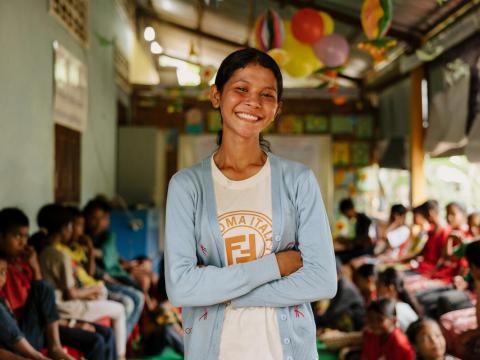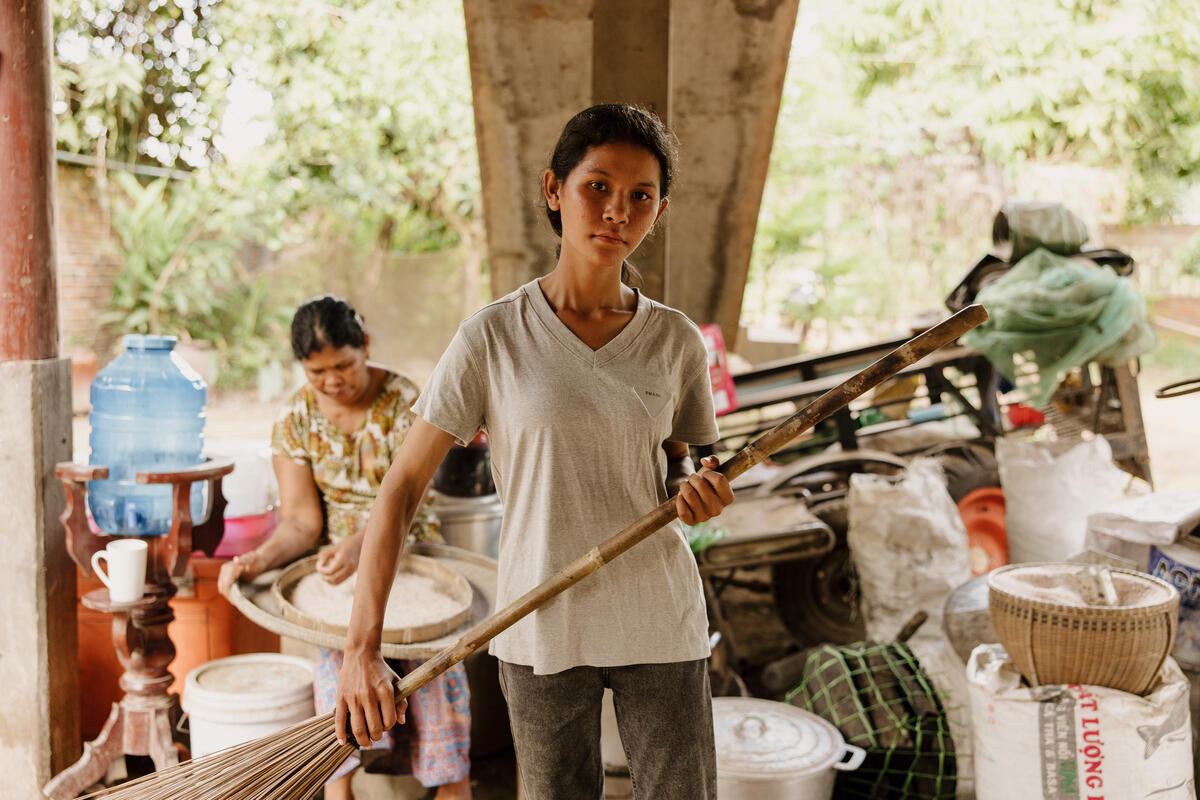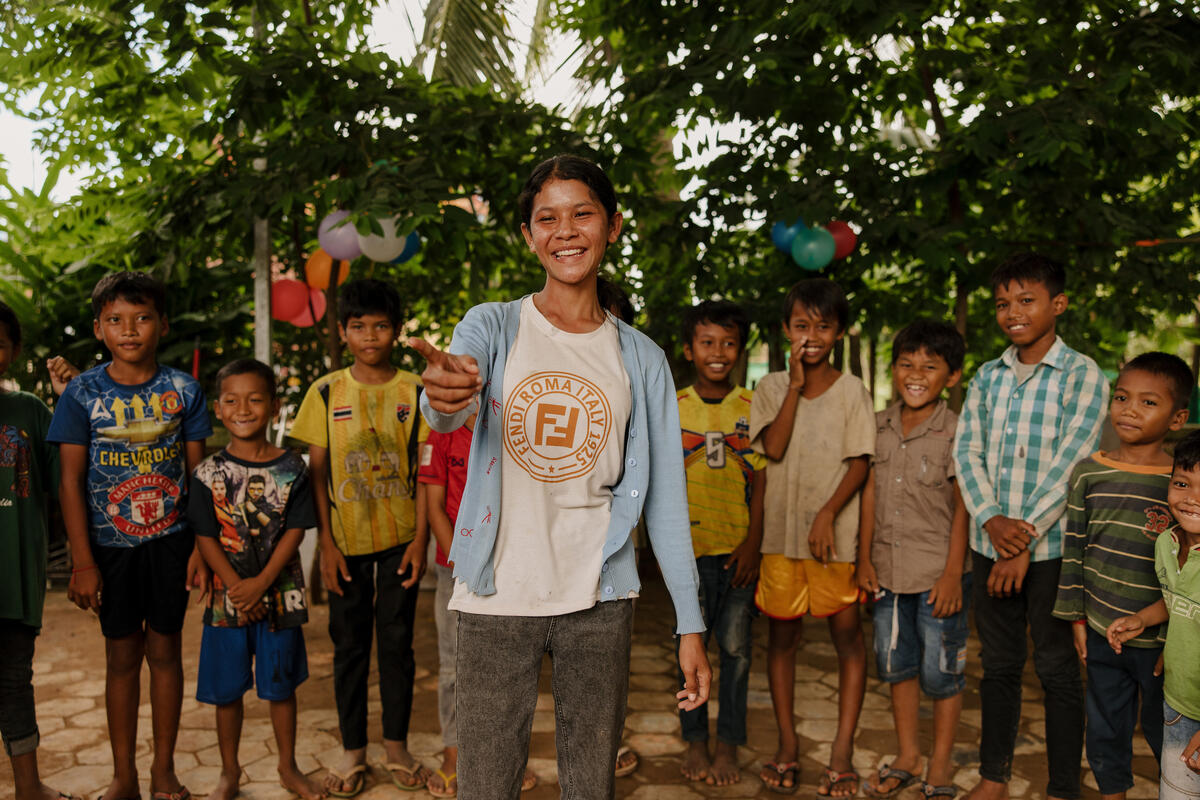From surviving to thriving: How child sponsors are helping girls in rural Cambodia create safe communities

18-year-old Phally grew up in a family where her aunt had too many mouths to feed and not enough income to meet all of their needs.
It was a daily struggle to survive.
“When I came to stay with my aunt, her economic situation was not good,” says Phally. “Sometimes I had to go to school and come back without eating.” Phally moved in with her aunt and her cousins after her mother died, and her father remarried and moved away with his new wife.
Going to school was a luxury that Phally didn’t take for granted. Her cousins and siblings had already dropped out because her aunt couldn’t afford the costs of their education.
“I used to tell my aunt that I also could stop studying, but she encouraged me to keep studying because all the other kids in the family had already stopped going to school. My aunt didn’t have a property to give me, so the only way she could help me in the future was to make sure I kept going to school.”

Phally’s story is not unique. The details may vary slightly, but in rural Cambodia, poverty is widespread, and many families struggle to earn enough income to provide for their children. It’s common for parents and caregivers to migrate to Thailand for work, leaving children in the care of grandparents or relatives.
It’s not easy for the family left behind with extra children to care for, especially when the money the parents promised doesn’t always arrive to help. This can leave their children vulnerable to exploitation, abuse, and neglect.
A World Vision report in 2021 found 37.9% of adolescents reported experiencing physical violence in the previous 12 months.
Phally’s situation as a child was made harder by complex health issues that have troubled her since she was young.
“People used to look down on me,” she says. “I didn’t have any friends. When I went to play with other children, they would ignore me. Because I came from a poor family, my clothes were not good and sometimes I would even smell, so no one wanted to play with me.”

Life changed for Phally when she joined the Youth for Change programme in her community, which is made possible by child sponsors. She learned about child protection and safety as well as life skills like self-confidence and public speaking. Eventually, the girl who was once pushed to the fringes of her community became a leader in the youth club.
“Everything has changed a lot. I’m braver than I was before. I can share, I can talk to people,” she says. “There’s been such a big transformation between before and after I was in the youth club. Now I have a lot of friends to play with, I can share what I want to share, and the club leaders told me not to listen to what other people say about me – I have to be myself.”
Phally is passionate about making sure all children in her community are safe and protected.
“I wanted to become a leader so other children know about their rights, and I want them to know about my story and show them that I can do anything. I share with the other members that we all have the same rights, and we can become anything we want.”
Phally has experienced such drastic change in her own life, she can’t help but spread the message as far and wide as possible.
“I also really want to encourage other mothers and caregivers to send their children to the groups, because, with this club, they learn about the different forms of violence and how to protect themselves so we can have a safer community.”
Creating a safer community means girls like Phally can reach for a future full of possibilities.
“When I’m finished school, I want to see the other children become the next generation of leaders. I want to become a teacher in a secondary school in a rural area. I want to take the experiences that have been really difficult for me and help other children.”
Imagine the change that would be possible if 1,000 girls like Phally were sponsored.
1,000 girls urgently need support by October 11th, International Day of the Girl.
Fight for her rights